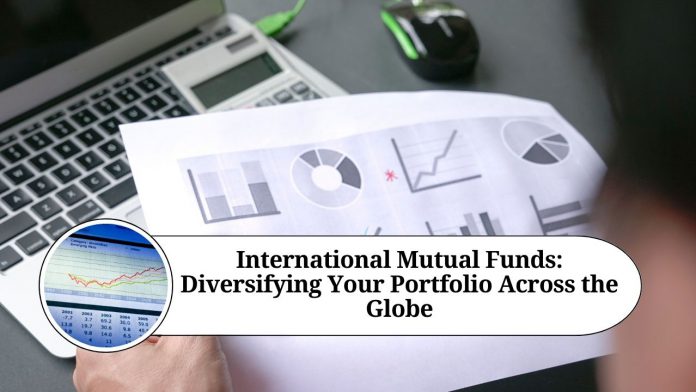Investing in international mutual funds has become increasingly popular among investors looking to diversify their portfolios and gain exposure to different markets across the globe. International mutual funds offer investors the opportunity to invest in a range of international equities, bonds, and other assets, which can help to spread out risk and potentially enhance returns.
What are International Mutual Funds?
International mutual funds are mutual funds that invest in stocks, bonds, and other assets outside of the investor’s home country. These funds invest in a variety of international markets, such as Europe, Asia, and Latin America, as well as emerging markets, which have the potential for high returns but also come with higher risk.
Types of International Mutual Funds
There are several types of international mutual funds, including:
- Global funds: These funds invest in companies located anywhere in the world.
- Regional funds: These funds focus on specific regions such as Asia, Europe, or Latin America.
- Country-specific funds: These funds invest in companies located in a specific country such as Japan, China, or Brazil.
Benefits of Investing in International Mutual Funds
Diversification: Investing in international mutual funds can help investors to diversify their portfolios, reducing the overall risk of their investments.
Higher returns: International markets can provide higher returns than domestic markets, especially in emerging markets where there is potential for high growth.
Currency diversification: Investing in international mutual funds also provides currency diversification, which can help protect investors from the risks of a single currency.
Disadvantages of Investing in International Mutual Funds
Higher volatility: International mutual funds can be more volatile than domestic funds due to political instability, currency fluctuations, and other factors.
Higher costs: Investing in international mutual funds can also come with higher costs due to additional fees and expenses associated with investing in foreign markets.
Risks of Investing in International Mutual Funds
Political risk: Political instability in foreign countries can affect the performance of international mutual funds.
Currency risk: Currency fluctuations can have a significant impact on the value of international mutual funds.
Economic risk: Economic factors such as inflation, interest rates, and unemployment rates can also affect the performance of international mutual funds.
Conclusion
International mutual funds can be a valuable addition to a well-diversified investment portfolio. By investing in a range of international markets, investors can spread out risk and potentially enhance returns. However, it is important to understand the risks associated with investing in international mutual funds, including political, currency, and economic risks, as well as higher volatility and costs. Before investing in international mutual funds, it is important to do your research, understand the risks and potential rewards, and consult with a financial advisor.
Read more useful content:
- How to invest in mutual funds
- Best Technology Mutual Funds
- All about mutual funds-types & importance
- The Power of SIP Investment in Mutual Funds
Frequently Asked Questions (FAQs)
Q. What are international mutual funds?
International mutual funds are mutual funds that invest in assets outside of an investor’s home country. These funds invest in a variety of international markets, such as Europe, Asia, and Latin America, as well as emerging markets.
Q. What types of international mutual funds are available?
There are several types of international mutual funds, including global funds, regional funds, and country-specific funds. Global funds invest in companies located anywhere in the world, while regional funds focus on specific regions, such as Asia or Europe. Country-specific funds invest in companies located in a specific country, such as Japan or Brazil.
Q. What are the benefits of investing in international mutual funds?
Investing in international mutual funds can help investors diversify their portfolios, potentially enhancing returns and reducing risk. International markets may also provide higher returns than domestic markets, particularly in emerging markets.
Q. What are the risks of investing in international mutual funds?
International mutual funds can be more volatile than domestic funds due to political instability, currency fluctuations, and economic factors such as inflation and unemployment. Investing in foreign markets also comes with additional fees and expenses.
Q. How can I invest in international mutual funds?
Investors can invest in international mutual funds through their brokerage account or through a financial advisor. It is important to research and choose a reputable fund and understand the associated risks before investing.
Q. Can I invest in international mutual funds if I am not a U.S. citizen?
Yes, international mutual funds are available to investors around the world. However, certain restrictions and regulations may apply depending on the investor’s country of residence.
Q. How are international mutual funds taxed?
International mutual funds are subject to the same tax rules as other mutual funds. Investors may be subject to capital gains taxes on any profits earned from the funds, and dividends may be subject to taxes as well. It is important to consult with a tax advisor for specific information on tax laws and regulations.




















